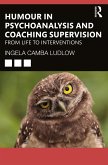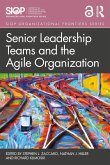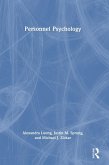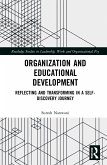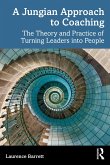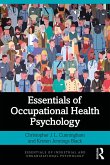Largely inspired by the work of the American social psychologist Dr. Claude Steiner and the theory of Transactional Analysis, this book explores alternatives to power and how we can use these to work and manage more effectively, with integrity and joy.
Within this book, the authors examine and expand on Steiner's idiosyncratic views on the role of 'power' in our lives and work, which led to a new view of the relationship between management and power. Steiner suggested seven alternative ways to be influential, without the use of power, which include: grounding, passion, control, empathy/love, communication, knowledge, and transcendence. This book explores and describes these seven alternative sources of power in more detail, and how they can be used to produce change and increase the personal power of all, rather than playing power games.
This will be a valuable resource for managers and leaders in all types of organizations, as well as for coaches, clinicians, and anyone who is interested in forms of influence other than the use of (autocratic) power.
Within this book, the authors examine and expand on Steiner's idiosyncratic views on the role of 'power' in our lives and work, which led to a new view of the relationship between management and power. Steiner suggested seven alternative ways to be influential, without the use of power, which include: grounding, passion, control, empathy/love, communication, knowledge, and transcendence. This book explores and describes these seven alternative sources of power in more detail, and how they can be used to produce change and increase the personal power of all, rather than playing power games.
This will be a valuable resource for managers and leaders in all types of organizations, as well as for coaches, clinicians, and anyone who is interested in forms of influence other than the use of (autocratic) power.
'Existing in the middle of forces we only partially understand, we are all participants in an unfolding mystery of the human journey from 'ME' to 'US'. In our desire to make a difference from our personal positions in systems, we create for ourselves illusions of power and authority; illusions that can both liberate and imprison us. Managing Without Power offers a wealth of concepts with which to winnow out the 'liberators' from the 'imprisoners'.'
John Bazalgette, co-founder of the Grubb Institute of Behavioral Studies, based in London, UK
'This book invites us to question existing ideas about power so as to consider the capacity of power. Through deepening Steiner's work the authors offer organizational leaders insights into how the dynamics and influence of power can be the catalyst for positive and collaborative change.'
Dr. Mandy Lacy, TSTA-O, is a consultant, coach and educator working in New Zealand
'Often we see power through a negative frame, identified with authority and control over others. Anne de Graaf and Klaas Kunst invite us to re-think that metaphor, to actively choose a language of power based on passion, knowledge, communication, and love, to frame it as a positive and mutual capacity to bring transformation.'
Trudi Newton, award-winning writer and educator in the field of Transactional Analysis, UK
'Managing Without Power is anything but another management book with tricks and treats. This book by Anne de Graaf and Klaas Kunst is like a mirror and critical friend for all leaders who want to continuously develop as a human being and as a professional. A timeless book, insensitive to hype.'
Albert Jansen, former chairman of the BMC group, a leading consultancy firm for the public sector in The Netherlands
'This book is grounded in the work of Claude Steiner, an important voice in TA history, who developed a model of seven sources of healthy power. The authors extend Steiner's concepts and apply them with care and finesse in a variety of management tasks. Although the book is written with a focus on organizational management, it transcends that focus. In today's troubled world, this is a timely book-one might say urgent.'
William F. (Bill) Cornell is an author, a practicing TA therapist and trainer, consulting editor to the Transactional Analysis Journal and editor of the Routledge "Innovation in Transactional Analysis" book series. He lives and works in the USA.
'The content of this book confirms that "knowledge is power" by offering intellectual and provocative elaborations with accessible application to diverse contexts around the world. I felt empowered with quality information when reflecting on power relations in the workplace, in the social, political, and economic dynamics of the country where I live, Brazil.'
Michelle Thomé, Transactional Analyst, Certified by Unat-Brasil. She lives and works in Brazil.
John Bazalgette, co-founder of the Grubb Institute of Behavioral Studies, based in London, UK
'This book invites us to question existing ideas about power so as to consider the capacity of power. Through deepening Steiner's work the authors offer organizational leaders insights into how the dynamics and influence of power can be the catalyst for positive and collaborative change.'
Dr. Mandy Lacy, TSTA-O, is a consultant, coach and educator working in New Zealand
'Often we see power through a negative frame, identified with authority and control over others. Anne de Graaf and Klaas Kunst invite us to re-think that metaphor, to actively choose a language of power based on passion, knowledge, communication, and love, to frame it as a positive and mutual capacity to bring transformation.'
Trudi Newton, award-winning writer and educator in the field of Transactional Analysis, UK
'Managing Without Power is anything but another management book with tricks and treats. This book by Anne de Graaf and Klaas Kunst is like a mirror and critical friend for all leaders who want to continuously develop as a human being and as a professional. A timeless book, insensitive to hype.'
Albert Jansen, former chairman of the BMC group, a leading consultancy firm for the public sector in The Netherlands
'This book is grounded in the work of Claude Steiner, an important voice in TA history, who developed a model of seven sources of healthy power. The authors extend Steiner's concepts and apply them with care and finesse in a variety of management tasks. Although the book is written with a focus on organizational management, it transcends that focus. In today's troubled world, this is a timely book-one might say urgent.'
William F. (Bill) Cornell is an author, a practicing TA therapist and trainer, consulting editor to the Transactional Analysis Journal and editor of the Routledge "Innovation in Transactional Analysis" book series. He lives and works in the USA.
'The content of this book confirms that "knowledge is power" by offering intellectual and provocative elaborations with accessible application to diverse contexts around the world. I felt empowered with quality information when reflecting on power relations in the workplace, in the social, political, and economic dynamics of the country where I live, Brazil.'
Michelle Thomé, Transactional Analyst, Certified by Unat-Brasil. She lives and works in Brazil.



